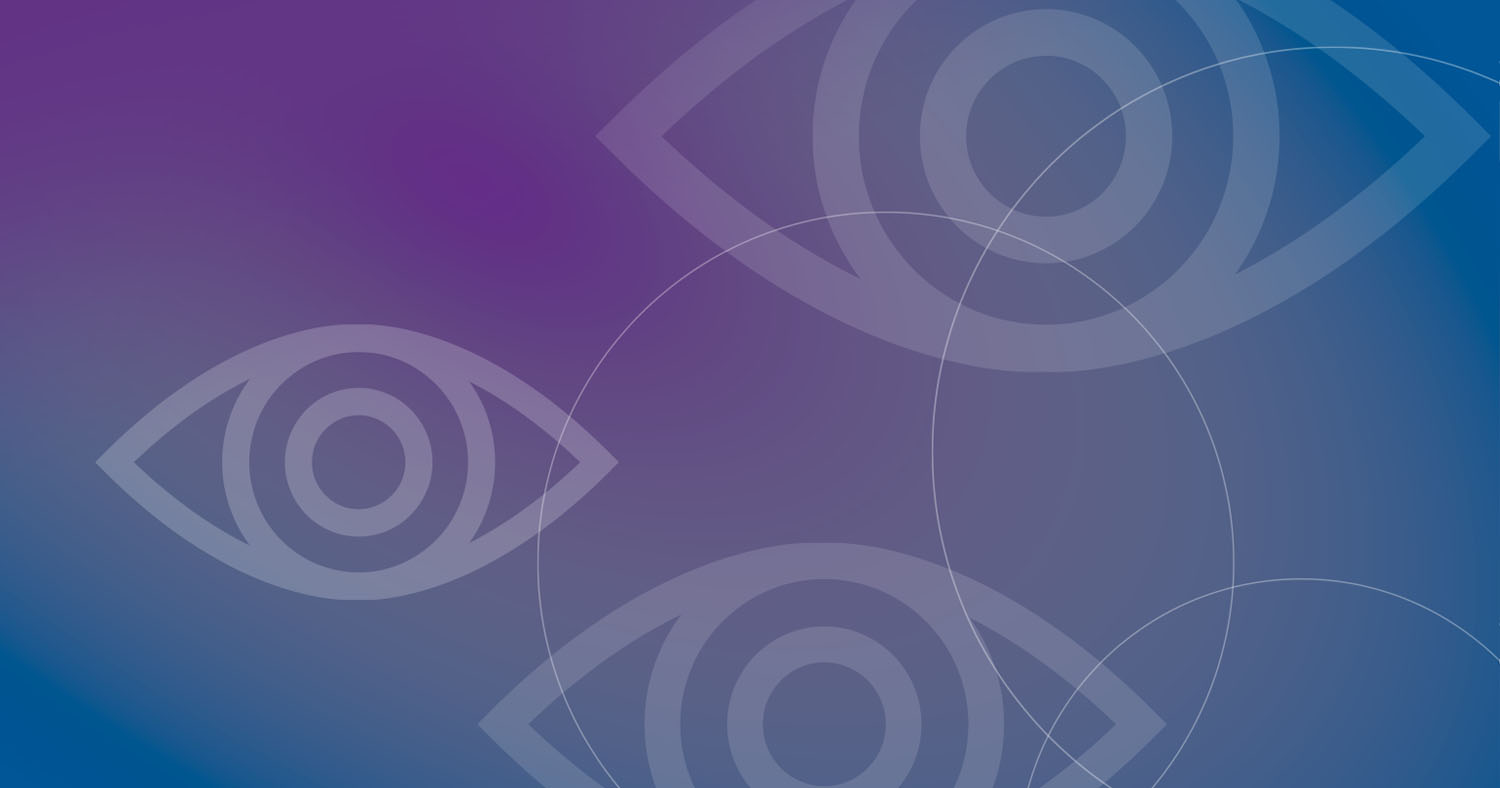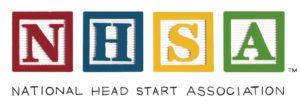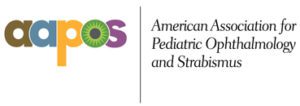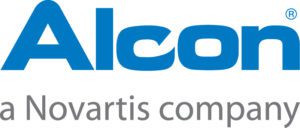The Year of Children’s Vision is an exciting, one-of-a-kind collaborative effort to support the vision health of children in Head Start and early childhood programs across the United States.
Overview
Prevent Blindness – via its National Center for Children’s Vision and Eye Health – is working in partnership with the National Head Start Association, the American Association for Pediatric Ophthalmology and Strabismus, the Good-Lite Company and SchoolHealth in an initiative called the Year of Children’s Vision (YOCV.) The goal of YOCV is to provide national guidance to staff of Head Start programs and other early childhood educators to standardize approaches to vision screening, improve follow-up for eye care for children who fail the vision screening, provide family friendly educational information and consult with some of the nation’s leading pediatric eye care providers to ensure best practices.
The Year of Children’s Vision promises to improve uniformity in the national approach for children’s vision health in Head Start programs. The effort will provide opportunities for learning and discussion on a monthly basis; free, downloadable resources in multiple languages; expert presentations; and maintain this website for future reference.
YOCV is an exciting, one-of-a-kind effort to support the vision health of children in Head Start programs leading to improved development and school readiness.
The Need
Vision impairments are common conditions among young children, affecting 5 to 10 percent of all preschool-aged children. If not detected and treated early, vision impairment could affect all aspects of life, negatively impacting a child’s ability to learn, athletic performance, and self-esteem. According to the Centers for Disease Control and Prevention, impaired vision can affect a child’s emotional, neurologic, and physical development by potentially limiting the range of experiences and kinds of information to which the child is exposed. A leading preschool vision screening study notes that vision screening is critical to the welfare of our children and can have an impact not only on vision and eye health but also on social development and productivity.
Research has shown that infants and young children with visual impairment have delayed motor development milestones; may express particular mannerisms such as gazing at bright lights, blinking, or eye rubbing; and have delayed language development. Additionally, children with special needs and those from low socioeconomic backgrounds have been shown to have an increased likelihood of eye problems. Improved assessment tools, education and outreach initiatives to support earlier identification of vision problems and appropriate referral to eye care in these vulnerable populations will result in improved potential for better vision. Timely intervention and effective treatment lead to long-term improvements in children’s vision and eye health and potentially that of the population at large.
The federal Office of Head Start recognizes the role that healthy vision plays in proper child development and currently requires all children in Head Start programs to be screened for vision problems within 45 days of a child’s enrollment. The implementation of this program requirement is left to be interpreted at a local level with little national guidance presently available on training of staff in vision screening, tracking outcomes, or conducting vision screenings. This results in wide variation in vision screening approaches and an inability to measure the success of vision screening practices in Head Start nationally due to differences in data collection and program procedures.
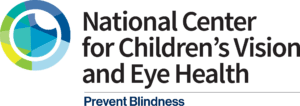
At Prevent Blindness, our vision is vision – a vision that all children are afforded the benefits of sight as they grow and learn; a vision that all adults are educated about proper eye health care and have access to that same care; a vision that necessary attention is provided to issues surrounding the aging eye; and a vision that no one needlessly loses his or her sight due to unsafe practices.
Prevent Blindness is the nation’s leading eye health and safety organization dedicated to preventing blindness and preserving sight across all age spectrums and multiple eye conditions. We focus on improving the nation’s vision and eye health by educating the American public on the importance of taking care of their eyes and vision, by promoting advances in public health systems of care that support eye health needs, and by advocating for public policy that emphasizes early detection and access to appropriate eye care.
Whether it is working to prevent potentially blinding eye injuries or sight-threatening conditions in young children or older adults – Prevent Blindness and our partners are here – promoting eye health, safety, early detection, and treatment.
Our mission is to coalesce, inspire and support the Head Start field as a leader in early childhood development and education.
The National Head Start Associationis a non-partisan, not-for-profit organization committed to the belief that every child, regardless of circumstances at birth, has the ability to succeed in life. The opportunities offered by Head Start lead to healthier, empowered children and families, and stronger, more vibrant communities.
NHSA is the voice for more than 1 million children, 200,000 staff and 1,600 Head Start grantees in the United States. Since 1974, NHSA has worked diligently for policy changes that ensure all at-risk children have access to the Head Start model of support for the whole child, the family and the community. NHSA offers an impressive portfolio of professional development services and programs for the entire early childhood community. These include the annual National Head Start Conference, the largest national event devoted to the Early Head Start and Head Start community, and the National Parent Conference, the only national event devoted to parents and families.
The American Association for Pediatric Ophthalmology and Strabismus (AAPOS) is the largest association of eye physicians and surgeons dedicated to promoting the highest quality medical and surgical eye care worldwide for children and for adults with strabismus. AAPOS’s goals are to advance the quality of children’s eye care, support the training of pediatric ophthalmologists, support research activities in pediatric ophthalmology, and advance the care of adults with strabismus. AAPOS establishes practice guidelines for pediatric ophthalmology at the highest level of competence and ethics, and fosters concepts that benefit children’s eye health through preventive as well as remedial activities. Children deserve eye care that is evidence-based, and the adults who care for children need the 1 necessary information to make informed choices about their care. AAPOS collaborates with groups interested in improving the quality of care that our patients receive.
The Good-Lite Company has manufactured and sold evidence-based eye charts, illuminated cabinets, and other vision screening and testing tools nationally and internationally for 83 years. Good-Lite’s commitment to quality is only surpassed by its commitment to customer service. School Health Corporation is a family-owned company that has served the school nurse and early education community for more than 60 years. School Health prides itself on being a respected name in health supplies for schools and athletic associations, and most recently in special education through the acquisition of EnableMart, the #1 source for assistive technology.
Good-Lite and School Health Corporation have worked with Head Start personnel for many years to help ensure front-line screeners have the knowledge and evidence-based tools and methods for conducting appropriate vision screening. Both are honored to collaborate with the National Head Start Association, the National Center for Children’s Vision and Eye Health, and the American Association for Pediatric Ophthalmology and Strabismus to further this work through the Year of Children’s Vision.
Program Support Provided By
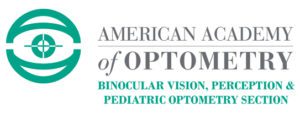
The American Academy of Optometry (AAO) is an internationalorganization of more than more than 7,000 optometrists and vision scientists dedicated to promoting the art and science of vision care through lifelong learning. The AAO supports excellence in optometric practice through the dissemination of research and by providing clinical education programs. The AAO also credentials optometrists and vision scientists through its fellowship and Diplomate programs.
Members of the Binocular Vision, Perception, and Pediatric Optometry (BVPPO) Section of the AAO are committed to fostering and conducting clinical, educational, and research activities in binocular vision, visual information processing, and pediatric eye care. A Section goal is to serve as a public resource regarding new clinical developments and research in pediatric eye care. The BVVPO Section is pleased to collaborate with other organizations that share its commitment to improving the quality and delivery of eye care services to children.
Financial Support Provided By
VS Health is dedicated to helping people on their path to better health as the largest integrated pharmacy company in the United States. Through the company’s more than 7,600 CVS/pharmacy stores; its leading pharmacy benefit manager serving more than 60 million plan members; and its retail health clinic system – the largest in the nation with more than 750 MinuteClinic locations – CVS Health is a market leader in mail order, retail and specialty pharmacy, retail clinics, and Medicare Part D Prescription Drug Plans. As a pharmacy innovation company with an unmatched breadth of capabilities, CVS Health continually strives to improve health and lower costs by developing new approaches such as its unique Pharmacy Advisor program that helps people with chronic diseases such as diabetes obtain and stay on their medications.
The Fred C. and Katherine B. Andersen Foundation
The Fred C. and Katherine B. Andersen Foundation is an independent foundation focusing their grants on art, education, health care, and youth development nationally with a focus in Minnesota and Wisconsin.
2017 NHSA Annual Conference
We are pleased to provide you with this series of presentations from the 2017 NHSA Annual Conference designed to bring excellence to your vision screening and eye health programs! Learn from nationally recognized eye care providers and public health leaders the information you need to develop and implement a strong Children’s Vision Health System of Care. This series of presentations includes:
2. The New Performance Standards and Your Vision Screening Program
The New Performance Standards and Your Vision Screening Program Handout
The New Performance Standards and Your Vision Screening Program Slides
2. Putting Healthy Vision in Sight- Critical Steps for Your Program
Putting Healthy Vision in Sight- Critical Steps for Your Program Handout
Putting Healthy Vision in Sight- Critical Steps for Your Program Slides
3. Birth to Three Study: Evaluation of a novel vision screening tool for detection of vision disorders
Birth to Three Study: Evaluation of a novel vision screening tool for detection of vision disorders handout
Birth to Three Study: Evaluation of a novel vision screening tool for detection of vision disorders slides
Implementing an Instrument-Based Vision Screening Program? What You Need to Know
Implementing an Instrument-Based Vision Screening Program? What You Need to Know Handout
Implementing an Instrument-Based Vision Screening Program? What You Need to Know Slides
2014 NHSA Annual Conference
The Year of Children’s Vision is pleased to provide you with this series of presentations from the 2014 NHSA Annual Conference designed to bring excellence to your vision screening and eye health programs! Learn from nationally recognized eye care providers and public health leaders the information you need to develop and implement a strong, 12-component, Vision Health System of Care- even when vision screening is conducted by volunteers or outside agencies. This series of presentations includes (1) critical questions to answer about vision development in Early Head Start and other birth to 3 programs, (2) considerations for children with special health care needs, (3) results of the NHSA national vision screening survey, and (4) how parents want to be engaged in follow-up eye care for their children.
Which Children Should Bypass Vision Screening and Go To An Eye Exam
Reena Patel, OD and P. Kay Nottingham Chaplin, EdD
Handout | Slides
Handout | Slides

